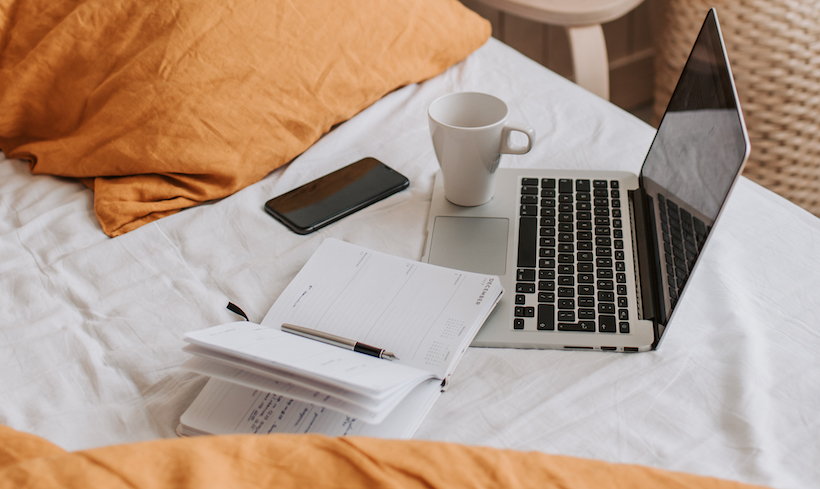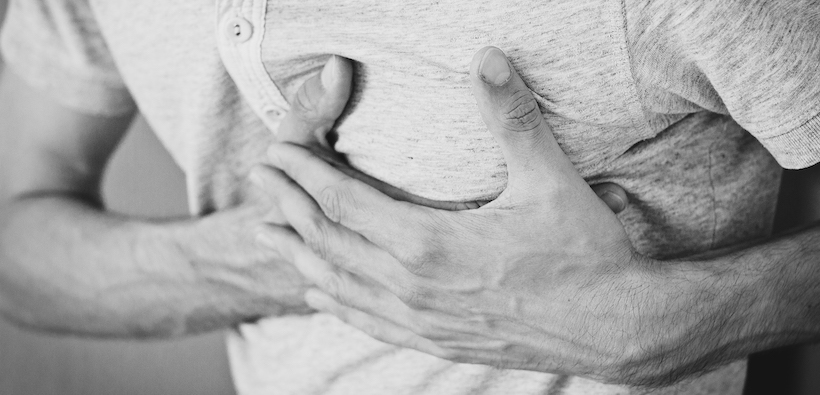My breakfast is never complete without coffee. In fact, a majority of the time, a cup of coffee is my breakfast.
Can you blame me? Coffee is the most popular beverage in the world after water. According to a 2019 survey of US coffee drinkers, 29% reported they consumed – on average – at least two cups of coffee daily at home during the week. This survey also found that 9% of American coffee drinkers drank six or more coffee cups daily.
With coffee's popularity, it makes you wonder how healthy it is to consume so much – especially outside a traditional meal. Although we know coffee is healthy, is it healthy to drink coffee on an empty stomach? Let's talk it through.
As noted, coffee brings some health benefits – and a noticeable, feel-good energy boost that eases you into your day. Coffee also is proven to help prevent diabetes and lower the risk of liver disease.
However, there is a science to drinking your coffee, which we shall explore later in this post. Coffee and the caffeine inside are great in moderation, but can lead to several acute heart conditions – and trigger GI issues.
Studies show that coffee competes with adenosine to wake you up and enhance your alertness and focus. Adenosine is a neurotransmitter that makes you feel drowsy – it increases in concentration as the day progresses. Caffeine competes with adenosine and prevents it from working, alleviating drowsiness.
Coffee can also:
Many people – like me – substitute having coffee for a full breakfast, mainly due to time constraints. Coffee in the morning is a powerful habit that even gives you a memory boost, enabling you to face your oncoming tasks with confidence, cognizance, and energy.
Ensure that you give your body time for your natural cortisol spike to lower some. The right time to drink coffee is likely closer to 9:30–11:30 A.M., but it's a worthy habit.

So, we've established that coffee in the morning is a pretty good habit. Whether you're pursuing something athletic today or could use the cognitive benefits for your job – it works.
However, as the old saying goes, "if a drug has no side effects, it doesn't work." Coffee and caffeine come with the oft-reported risk of GI issues – both the need to run to the bathroom and upper GI risks such as nausea and heartburn. What's going on there?
In our stomach is hydrochloric acid that assists our bodies in the proper digestion of food. Coffee is a bitter drink – when you drink it, it increases gastric acid production. Said another way: taking coffee on an empty stomach increases the hydrochloric acid in the stomach, even without food. Scientists debate whether this can *cause* any issues. Still, anecdotes abound – many people have significant issues with the increased acidity, both from the coffee itself and the effects on their stomach.
Whatever the case, it's something to keep in mind – especially if you already experience GERD, occasional heartburn, or other symptoms. There may be a workaround, though – different studies show adding dairy to your coffee can counteract some adverse GI effects. The lactose in dairy products binds chlorogenic acids and reduces many of the effects.
Maybe there's something to that milk or cream? Certainly worth a splash if you're having issues.
Another theoretical issue with coffee on an empty stomach relates to cortisol – the body's master stress hormone.
Your adrenal glands release cortisol in your body, your body's stress hormone that regulates the "fight or flight" response. Additionally, it has significant effects on your metabolism and immune system.
Studies have shown that caffeine increases cortisol and epinephrine (you might know it as "adrenaline") even when the body is at rest. The cortisol levels after caffeine intake are similar to levels experienced during an acute stress episode.
Is that an issue? Would eating food before caffeine slow down this response? Again, the jury is out. Caffeine absorbs relatively quickly (think: a peak around 15-60 minutes after you drink your coffee), so any concerns with cortisol might just come down to your sensitivity. Let's talk about that next – anxiety and jitters brought on by cortisol.
Coffee is a stimulant – all of these major effects on your attention, memory, and performance have to be balanced against the hormonal impact on cortisol and adrenaline. Caffeine is inextricably linked to psychological disorders such as anxiety and other stress disorders. More caffeine makes them even worse.
All that to say: it's very possible if you drink coffee without food you might overconsume and trigger anxiety or jitters. (That's a good reason to start slowly if you want to start intermittent fasting and skipping breakfast).
Also, I'd be remiss if I didn't mention caffeine withdrawal. Yes, avoiding caffeine if you're in the habit can cause its own issues.
Studies show that caffeine and caffeine withdrawal increases anxiety levels, and can also trigger anxiety disorders, making you irritable and devoid of focus. That's on top of other withdrawal symptoms – such as its own set of GI issues and headaches.
In one case, we do have solid evidence that coffee might cause issues if you aren't familiar with a side effect: caffeine increases mineral excretion.
In a 2005 study, Erin T. Bird et al. carried out double-blind, placebo-controlled, random research on humans without urinary tract disease.
The results showed that although caffeine appeared to produce diuresis (increased urine), it did not have significant or long-term effects on the subjects' lower urinary tract function. However, caffeine increased the excretion of essential minerals and vitamins like calcium, vitamin B6, iron, and magnesium.
In a vacuum, is that dangerous? Not necessarily. However, if you drink caffeine without a meal, you won't be replacing those minerals and vitamins through food. Just keep it in mind if you're in the empty stomach habit.
Any foods or beverages containing caffeine like coffee, tea, chocolate, and some caffeinated soda, can inhibit the body's mineral and vitamin absorption.
However, when you take caffeine in moderation, these effects are minimal and not health-threatening. Also, since you aren't eating around the time of your coffee, it makes less of a difference on an empty stomach. Make it up later in the day!

Drinking coffee on an empty stomach is fine – if you watch for any GI symptoms and acknowledge, you will lose some minerals and vitamins.
Coffee might trigger IBS, heartburn, and nausea on an empty stomach. Scientists don't believe coffee on an empty stomach can cause damage, but if you are susceptible, you should lay off the coffee.
Coffee is rich in antioxidants. Antioxidants have beneficial anti-inflammatory properties and help lower the risk of heart diseases, cancer, and type-2 diabetes.
Additionally, research shows that exposure to cold weather conditions and increased caffeine intake may increase brown fat cell function enabling your body to burn more calories, leading to weight loss.
Also, black coffee isn't calorie-rich. One cup of coffee contains only around one calorie and 100mg of caffeine – perfect if you want to keep your weight in check on top of its other effects.
For most people, a better time to drink your first coffee cup is between 10 A.M. and 12 Noon.
Before you wake up to around an hour after you wake, your body naturally increases cortisol levels to prepare you to wake up. Caffeine increases cortisol – if you time it on top of a natural peak, it blunts the stimulant effects. Better to time it when your cortisol levels are waning mid-morning.
Caffeine reduces feelings of hunger and increases your energy levels. Whether it is okay to drink while fasting depends on the additives you use in your coffee – namely sugar, cream, or milk.
One to two cups of black coffee during fasting is acceptable and seems to keep the hunger pangs at bay. However, don't add too much sugar and dairy – it's not a fast with calories.
Note that it's okay for fasting for dietary reasons or if you're looking to experiment with longevity. If you're fasting to rest your digestive system, you should undoubtedly skip the coffee.
Yes. It's okay for most people to drink coffee on an empty stomach.
However, be vigilant – coffee undoubtedly triggers anxiety in some, and GI issues in others, which may be worse without food. This will (as with many things!) boil down to your own body's tolerance.